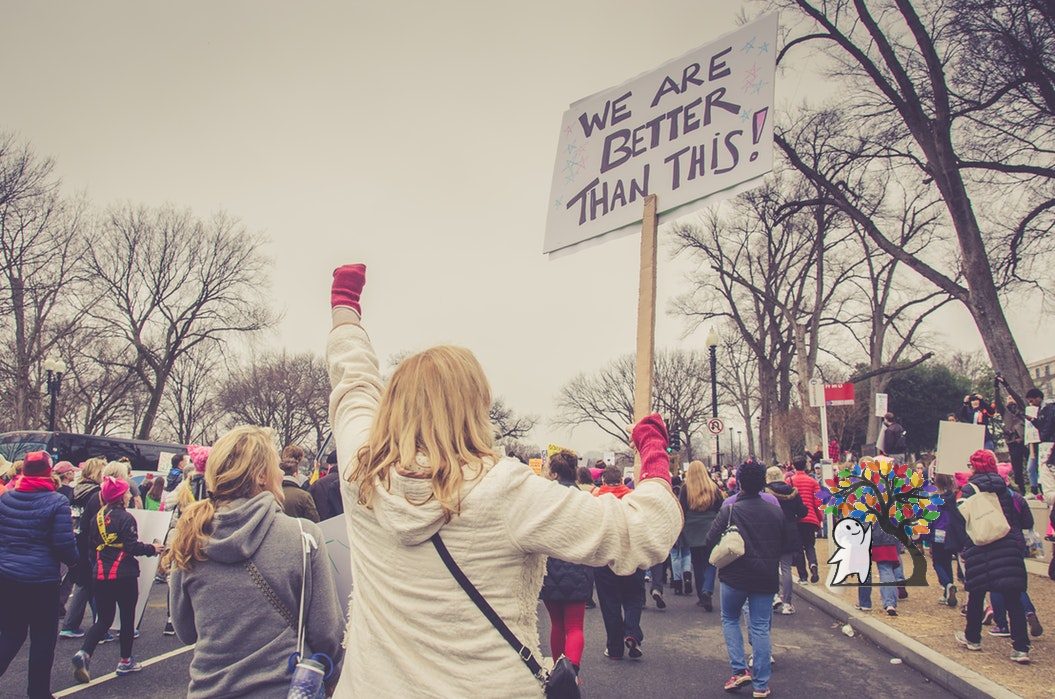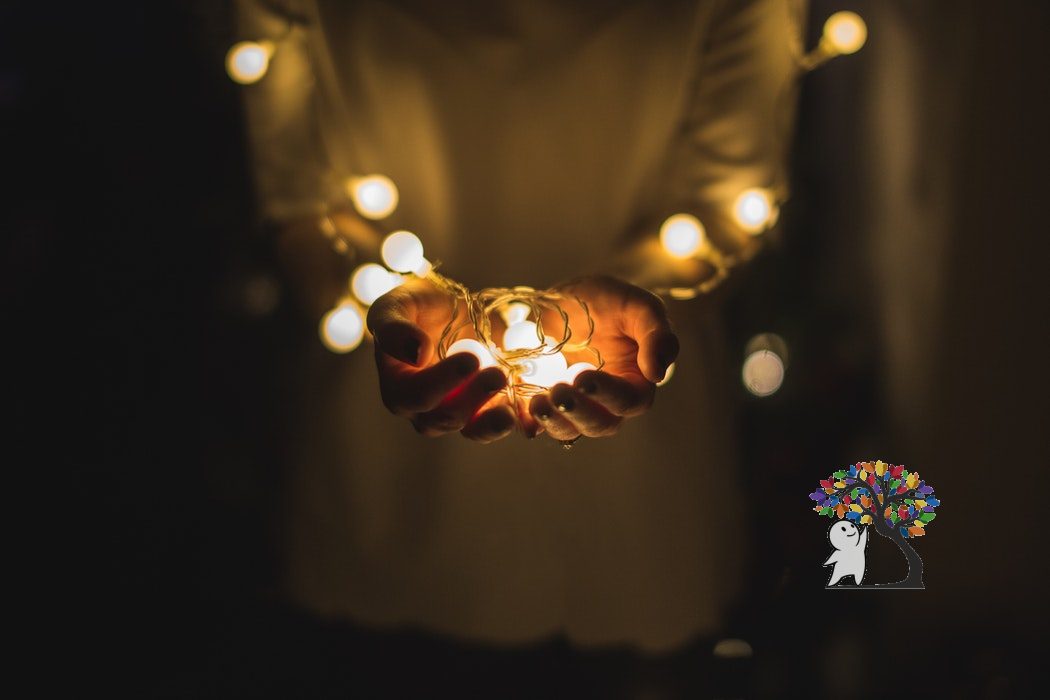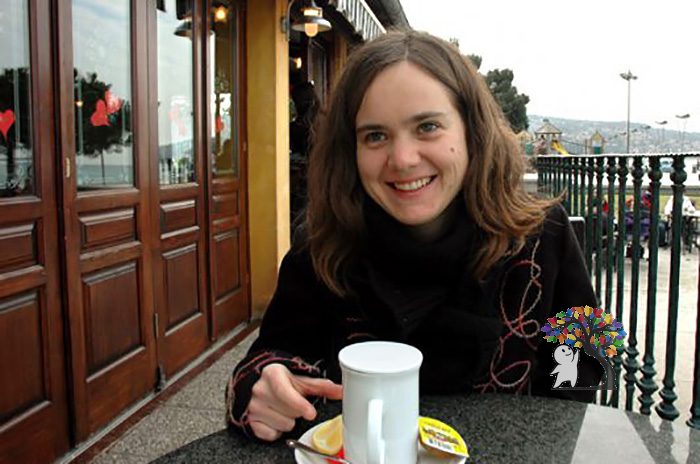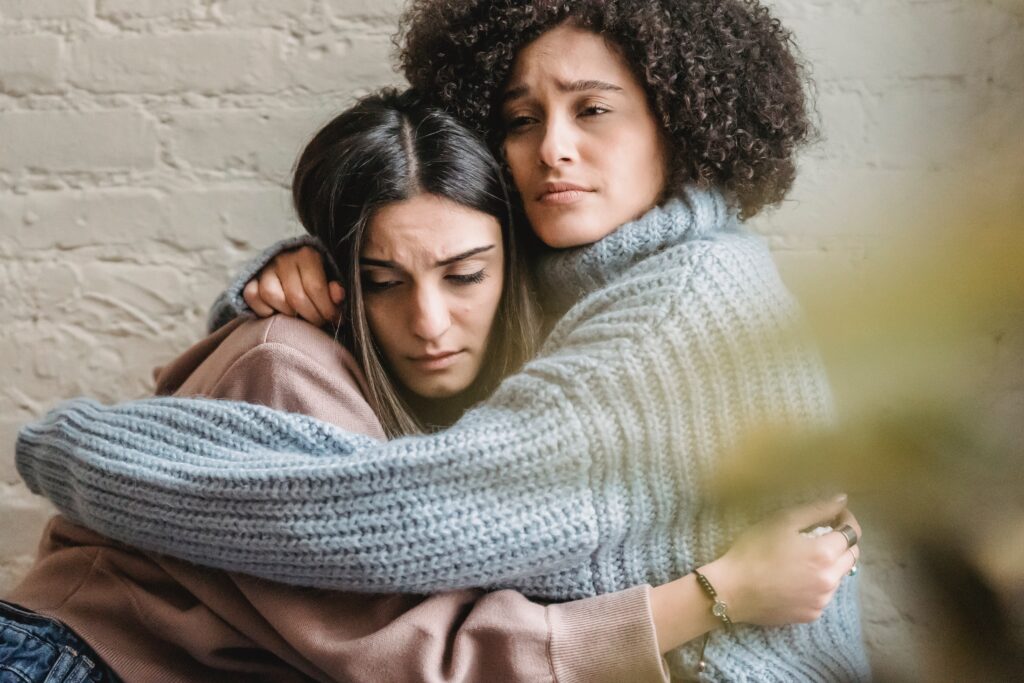How to Cope with Your Social Anxiety

Social anxiety is something that I’ve struggled with. I’m sure you’re reading this because you have it, too. It’s a common problem that many of us face, yet the last thing we want is for our fans to feel alone. Our goal here at Psych2Go is to create a safe space for you where we can share our stories with each other. As a content creator, I often produce articles that can help you relate, but my favorite part is being able to engage with the people I come across every day! Recently, I had the privilege of interviewing Barbara Milavec from Free From Social Anxiety. We hope that by sharing her insights and story on surviving social anxiety that they can motivate you to find the strength to do the same. ♥
1. First off, tell our fans and I a little bit about yourself! Where do you live, what do you do, and what are your passions, hobbies, and interests?
I live in a beautiful place on Slovenian coast, and some of my passions and hobbies are photography, swimming, hiking, sailing, yoga, spirituality, psychology, graphic design and arts in general, playing guitar and singing, and I’m also quite a computer/internet nerd. Photography, working as crew on sailing boats and working on various online projects are also my sources of income.

2. How does psychology impact your life?
Learning about psychology plays an essential role in my personal growth. I’ve been interested in it ever since my teenage years, but started to dive deeper when I was 20 and my problems with social anxiety, general anxiety and depression started to go out of control.
I can probably say that studying psychology saved my life. It helps open our minds and hearts and see the world from different angles. It helps us connect with ourselves and communicate with others more efficiently.

3. How has social anxiety shaped you? What are some struggles you’ve been through because of it?
While I’m an empath by nature, social anxiety made me even more compassionate and understanding for people’s struggles and behaviors. I came across a really good quote by Mary Shelley recently, which says “No man chooses evil because it is evil; he only mistakes it for happiness, the good he seeks.”
A lot of my social anxiety came from being hurt and abused in the past, so understanding what drives people to do the things they do helped me heal and move on.
Obviously, understanding doesn’t equal justifying someone’s actions, but it helps not to take their behaviour personally and attach it to our own self-worth, as we tend to do when we are socially anxious and our self-confidence is very low.
Before I realized this, I thought I had to build a big, thick wall around me in order to protect myself and heal, but truthfully, in the long run, only love can heal us – love for ourselves and for others. The first part – love for ourselves, which equals unconditional self-acceptance – is what we often tend to forget.
The paradox here is that love actually has the effects you seek from a wall: It protects you from being hurt. At the same time, it heals and connects you with people who are aligned with your values, while a wall would keep you away from those people, too.
Some of the struggles I’ve been through was being isolated, lonely, depressed, and letting myself be abused by other people. I’d avoid places where I could meet someone I know, or I’d be extremely anxious just going to school. I’d keep running away in my inner daydream world, or listen to music all the time (especially while walking through town) in order to forget about the world and stay in my own bubble.

4. What are some coping methods/strategies that you use for your social anxiety?
I don’t have much social anxiety anymore. Of course, I do get anxious before a very important event or before public speaking, but it has nothing to do with the social anxiety disorder I used to have, so I deal with it differently now.
I would also like to say that the strategies I used are not helpful just for coping, but are also efficient for overcoming social anxiety disorder permanently.
I practice very different methods because in my experience, it’s the combination that makes them powerful. Some of them are classic techniques, like belly breathing, positive self-talk, self-hypnosis, mindfulness, practicing self-acceptance, and so on.
However, the most powerful thing you can do to dissolve social anxiety is to focus on the good in people, look for what you can learn from them, and grow love for them.
The opposite of love is fear, not hate. And when you learn to grow that love from within, fear automatically melts away. With love, I don’t mean that you let yourself be abused or treated badly by someone, or that you approve of their abusive behavior. As said earlier, love includes the love for yourself, and it helps you understand, forgive, let go, and move on.
Speaking about coping methods and strategies, it’s important to note that usually none of them are powerful on the first try. Like with most things in life, the more you do it, the better you become.
I see people trying one thing once or twice and say “this doesn’t work for me.” This kind of attitude doesn’t work for anyone (or very rarely)! Then, they lose hope and think they can’t overcome their struggles, which is a shame because we are capable of so much more than we think. We have an unlimited potential within us.

5. We have many fans who also struggle with social anxiety. Do you have anything you’d like to let them know or have any words of encouragement for them?
Never give up. Even if you worked hard on something and it didn’t work for you, keep growing and learning from everyone and everything around you. My path of overcoming social anxiety disorder wasn’t a straight and easy one. It was full of bumps and ups and downs, but it’s totally worth it in the end.

6. Sometimes, mental health problems can distort our perspective on ourselves and paint life in darkness. What do you find keeps you inspired and motivated?
The thought that everything passes, and so will this dark moment. I’ve been through very low lows and often thought of taking my own life, but in the end things always turn around and it becomes the past and a learning lesson which makes you stronger.
So when things get bad, I keep reminding myself that no matter how bad it is, everything passes, and so will this pain. The only constant in life is change.
With this, I don’t want to say that we should just sit and wait for the problems to pass. You do the best you can, and sometimes you also have to let the pain be, accept it, embrace it, communicate with it, and then let it go. Then, as soon as you have more energy, use it to work actively on your personal growth.

7. Thank you so much for your time and consideration. We hope our community members can take away something valuable from your experiences, wisdom, and insights, Barbara! Please include your email and your blog, so our fans can read your work and know where to reach you in case they have more questions! 🙂
Thank you for having me on Psych2Go. 🙂 Feel free to reach out at barbara@freefromsocialanxiety.com (I do my best to answer every email I receive) and find out more about strategies for overcoming social anxiety on my blog http://freefromsocialanxiety.com.
Did you find these tips to be helpful? How do you cope with social anxiety? Psych2Go would love to hear your thoughts! Please be sure to leave a comment down below!




Really cool interview! I also found the backstory of her interesting, how she managed to cope with it! A big thank you Catherine & Barbara Milavec ^^
Hi Chris, I’m glad you enjoyed the interview! I found it therapeutic myself reading Barbara’s responses as well! 🙂 Have a great day! ♥
Hi Catherine, it always means a lot to hear that my work is helpful to someone else. <3
I hope my experience can help shorten the way up for some of your readers as well.
Hey Chris, thanks for your comment and for the kind words! I’m glad you liked the interview!
I recently gave away a concert ticket because I couldn’t face going out with colleagues, $130 wasted. At the moment I can’t imagine anyone actually liking me so I’m trying to avoid people as much as possible. I have to work but avoid most of the chatter, I feel like I’m drowning. What if some of us really aren’t likeable though, don’t we just have to accept that? My happy, relaxed time is with my daughter and running, but I’m injured at the moment so I can’t run. It’s hard to keep smiling on the outside sometimes.